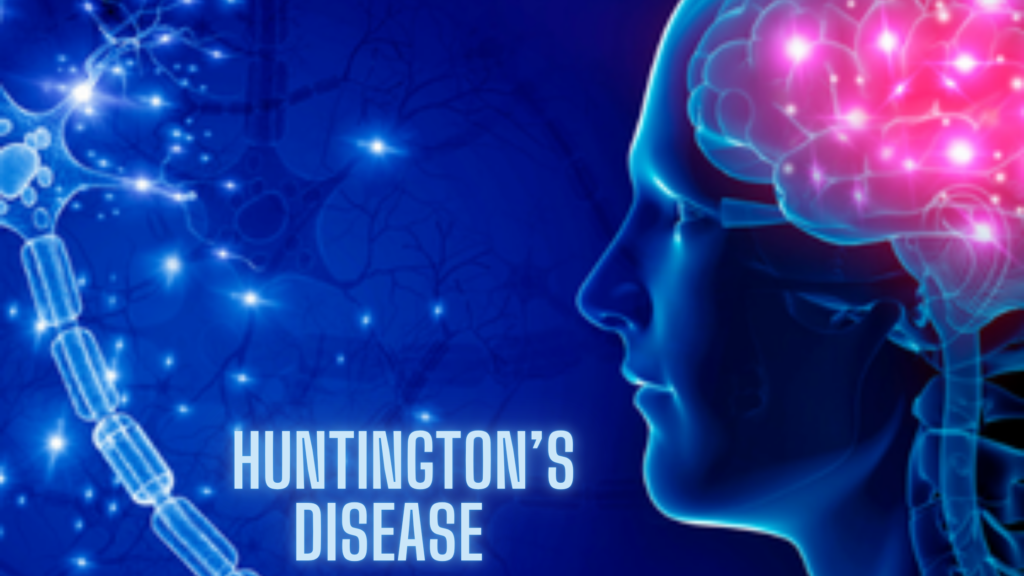🧠 Huntington’s Disease – Overview
Huntington’s disease (HD) is a rare, inherited neurodegenerative disorder that causes progressive breakdown of nerve cells in the brain. It affects movement, cognition (thinking), and behavior, and symptoms typically begin between ages 30 and 50, though juvenile forms exist.
🧬 Cause
- Caused by a mutation in the HTT gene on chromosome 4.
- This gene produces the huntingtin protein.
- In HD, there is an abnormal repetition (CAG repeats) in the gene:
- Normal: < 36 repeats
- HD: ≥ 36 repeats (more repeats = earlier and more severe onset)
- Autosomal dominant inheritance: A child of an affected parent has a 50% chance of inheriting the disease.
⚠️ Symptoms
Symptoms worsen gradually over time and can be grouped into:
🔹 Motor Symptoms:
- Chorea: Involuntary, jerky movements
- Muscle rigidity or stiffness
- Impaired coordination and balance
- Slurred speech
- Difficulty swallowing (late stage)
🔹 Cognitive Symptoms:
- Trouble concentrating or remembering
- Poor judgment and planning
- Slowed thinking
- Dementia (in later stages)
🔹 Psychiatric Symptoms:
- Depression, irritability
- Anxiety
- Mood swings
- Obsessive-compulsive behaviors
- Psychosis (less common)
🧪 Diagnosis
- Genetic testing: Confirms CAG repeat expansion in the HTT gene
- Neurological exam: Checks for motor and cognitive function
- Brain imaging (MRI or CT): May show brain atrophy (especially of the caudate nucleus)
- Family history is often a clue
💊 Treatment
There is no cure, but treatments help manage symptoms:
🔹 Medications:
- Tetrabenazine or deutetrabenazine: For chorea
- Antipsychotics (e.g., risperidone, olanzapine): For irritability or severe movements
- Antidepressants: For mood symptoms
- Mood stabilizers: For severe mood swings
🔹 Supportive Therapies:
- Physical therapy: Maintain mobility and prevent falls
- Speech therapy: Help with communication and swallowing
- Occupational therapy: Assist with daily activities
🔹 Future Treatments (under research):
- Gene-silencing therapies
- Stem cell therapy
- Neuroprotective drugs
🧬 Genetic Counseling
- Essential for individuals with a family history
- Predictive testing is available but has emotional and ethical implications
- Support from a genetic counselor is strongly advised
🛡️ Prognosis
- Symptoms worsen gradually over 10–25 years
- Late stages often require full-time care
- Death usually results from complications like infections, aspiration pneumonia, or falls
✅ Key Points
- Huntington’s disease is a genetic, progressive brain disorder
- Causes movement, cognitive, and emotional symptoms
- Genetic testing can confirm the diagnosis
- While incurable, medications and therapies help manage symptoms and improve quality of life
